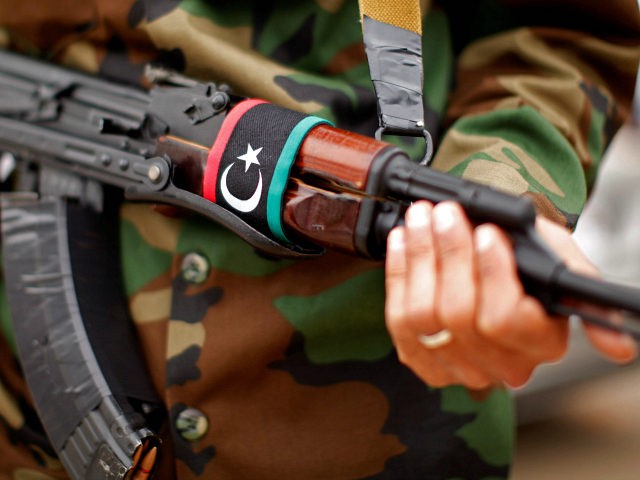Russia has provided assistance to two rivals in Libya — the prime minister of the United Nations-recognized government in Tripoli and the leader of a military faction that opposes him — in an effort to deepen military operations inside the North African country.
Russian ground troops in Libya are also interfering with American operations, fueling instability and the deterioration of the political situation in the country. Marine Gen. Thomas Waldhauser, the chief of U.S. Africa Command (AFRICOM), told Pentagon reporters that Moscow is fueling instability and worsening the deteriorating political condition of the country.
Moscow reportedly hosted Fayez Al-Sarraj, the prime minister of the internationally-backed Government of National Accord (GNA) based in Tripoli, and Libyan military strongman Khalifa Haftar, a U.S. citizen and leader of a faction opposed to Sarraj.
“Russia is trying to exert influence on the ultimate decision of who becomes, and what entity becomes, in charge of the government inside Libya,” Marine Gen. Waldhauser told lawmakers this month.
“They’re working to influence that decision,” he added.
Russian President Vladimir Putin claims his intentions are to improve security, political, and humanitarian conditions in Libya, reports the Libya Herald.
Libya still houses a small number of American troops charged with calling in airstrikes, revealed the top AFRICOM chief.
Last year, former President Barack Obama signed a law that drastically limits the United States’s cooperation with Russian counterparts until Russia pulls out of Ukrainian territory and meets some other demands. Secretary of Defense James Mattis, in coordination with Secretary of State Rex Tillerson, has been granted the authority to waive the limitation if is determined “that the waiver is in the national security interest of the United States.”
In February, Secretary Mattis did leave the door open for cooperation, saying the United States military is “not in a position” at the moment to “collaborate” with their Russian counterparts.
Last week, the head of American Central Command (CENTCOM) Gen. Joseph Votel told lawmakers that Russia has expanded its military presence well beyond Syria into his area of responsibility (AOR), particularly Afghanistan, Libya, Pakistan, Egypt, and Afghan neighbor and home to jihadists that fight for ISIS, Tajikistan.
Citing the Institute for Economics and Peace’s 2016 Global Terrorism Index, Gen. Votel told lawmakers CENTCOM’s AOR is home to nearly 80 percent of the world’s terror attacks. The U.S. military believes the Afghanistan-Pakistan area alone is where the largest concentration of jihadist groups in the globe reside.

COMMENTS
Please let us know if you're having issues with commenting.